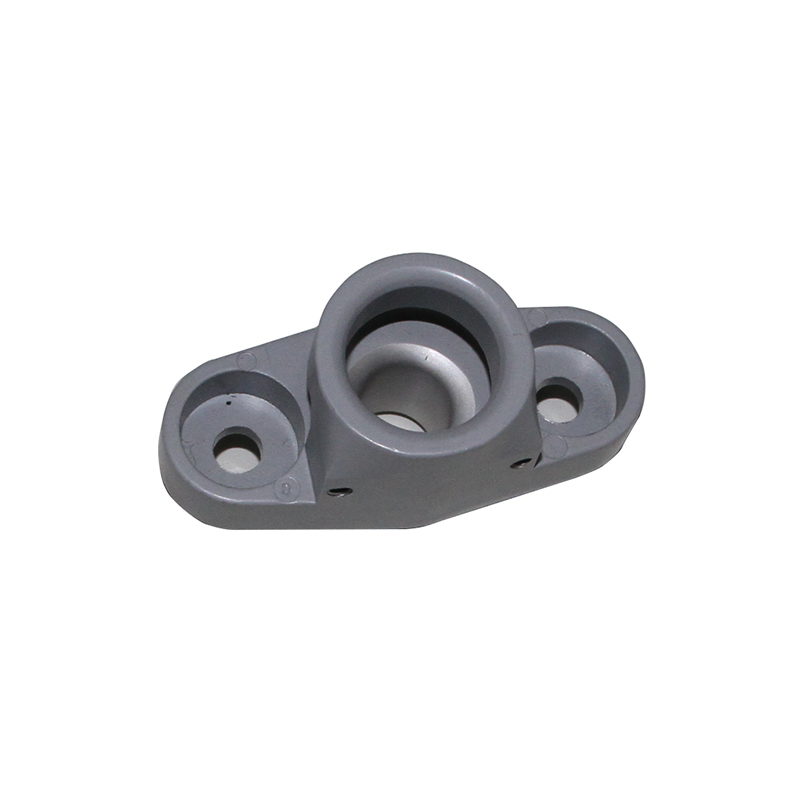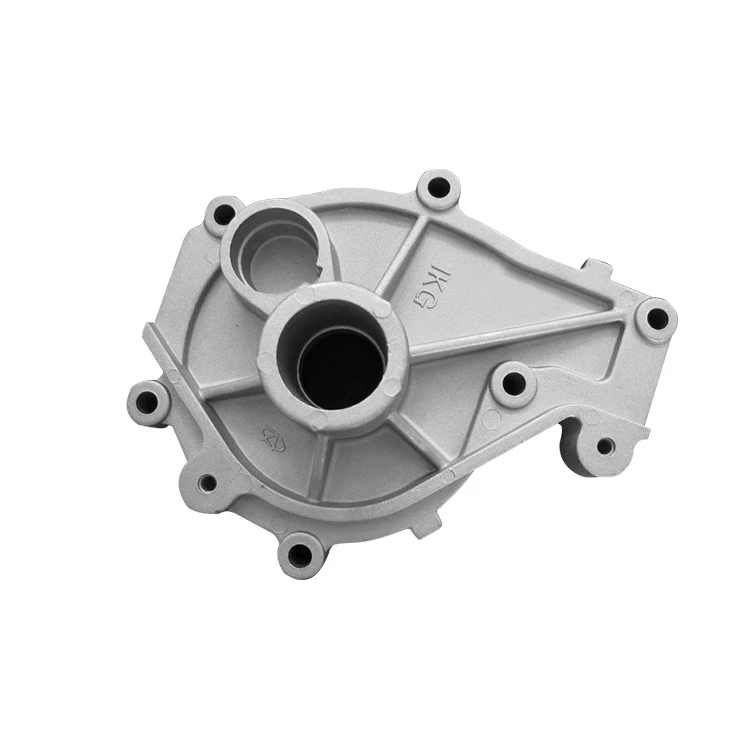Exploring the Function of Foundry Solutions ahead of time Modern Design Solutions
Shop solutions are necessary fit modern-day engineering options - Aluminum Casting Company. They connect the gap between standard manufacturing methods and the needs of modern markets. With developments in automation and sustainability, factories are evolving to satisfy the requirements of markets such as aerospace and automobile. This change questions regarding the effects for materials, procedures, and future innovations. What opportunities and obstacles exist in advance for shop solutions in this quickly altering landscape?
The Evolution of Factory Services in Design

The assimilation of computer-aided design (CAD) and simulation software application has transformed the layout and production processes, allowing foundries to produce complicated geometries with greater precision. The shift in the direction of green methods has led to the fostering of greener innovations and recycling efforts within foundries. As industries significantly prioritize personalization and rapid prototyping, factory services have broadened their capacities, ensuring they remain essential contributors to the engineering landscape. This evolution underscores the shop's essential role in supporting improvements across different fields, including auto, aerospace, and energy.
Key Processes and Techniques in Modern Foundries
Modern foundries employ a range of crucial processes and techniques that enhance the efficiency and top quality of metal spreading. Among these, sand spreading stays prevalent because of its adaptability and cost-effectiveness. The use of innovative modern technologies, such as computer-aided layout (CAD) and computer-aided manufacturing (WEB CAM), permits exact modeling and production, ensuring high precision in element measurements. In addition, investment casting is preferred for creating complicated geometries with excellent surface coatings.
Additionally, automation and robotics enhance manufacturing rate and uniformity while reducing labor prices. Strategies like additive production are increasingly integrated to generate elaborate mold and mildews and cores, thereby lessening material waste. The application of thermal analysis aids in optimizing spreading procedures by forecasting and regulating solidification behavior. Collectively, these procedures and methods exhibit just how contemporary factories are adapting to satisfy the needs of modern design obstacles, making sure superior product high quality and functional efficiency.
The Value of Products Option in Shop Services
Choosing the proper products is important in foundry solutions, as it directly influences the mechanical buildings, resilience, and total efficiency of the end product. Various products have special features, such as tensile stamina, deterioration resistance, and thermal security, which have to align with the designated application of the cast components. For example, metals like light weight aluminum and steel are frequently selected for their strength-to-weight ratio, while alloys can improve certain efficiency traits.
The selection procedure involves taking into consideration aspects such as manufacturability, schedule, and cost, which can especially impact project timelines and budget plans. In addition, developments in product scientific research enable the advancement of cutting-edge composites and specialized alloys that accommodate emerging design difficulties. A thorough understanding of product homes and their effects is vital for designers and factory experts to attain successful results in their projects. This mindful option process eventually enhances the integrity and performance of completion items.
Foundry Solutions in Aerospace and Automotive Applications
Foundry solutions play a crucial role in the aerospace and automobile markets, where accuracy and performance are paramount. These markets count heavily on the manufacturing of complex elements that have to meet strenuous top quality requirements and hold up against extreme conditions. Shops provide important solutions such as spreading, machining, and finishing, guaranteeing components are lightweight yet robust, vital for boosting gas efficiency and safety and security.
In aerospace, shop services add to the production of turbine blades, engine components, and structural parts, all of which demand complex layouts and high-performance products. In a similar way, in the vehicle market, factories provide engine blocks, chassis components, and transmission cases, concentrating on resilience and weight reduction.
Advanced shop strategies, including additive production and precision spreading, are progressively utilized to meet the specific needs of these sectors. By providing tailored solutions, factory solutions assist drive technology and keep affordable benefits in the fast-evolving aerospace and auto landscapes.
Developments Driven by Shop Capabilities
Countless technologies in check out here engineering are fueled by the innovative capacities of factory services. These solutions enable the manufacturing of complicated geometries and high-performance materials that are important for modern-day applications. For instance, additive manufacturing, commonly referred to as 3D printing, has seen significant improvements with foundry strategies, permitting the fast prototyping of intricate layouts. Furthermore, the capacity to cast lightweight alloys has actually reinvented industries such as aerospace and vehicle, causing enhanced gas efficiency and efficiency.
Furthermore, factories are progressively incorporating wise modern technologies, such as automation and data analytics, to improve manufacturing performance and quality assurance. These innovations not just decrease waste however also enable modification at range, meeting the certain demands of clients. By leveraging sophisticated factory abilities, designers can check out new frontiers in product style and capability, ultimately driving progression across various sectors and developing a structure for future developments.
Future Patterns in Foundry Solutions and Design Solutions
The future of shop services is formed by arising patterns such as sustainable manufacturing practices, which prioritize environmental duty. Automation and smart technologies are set to improve performance and accuracy, while boosting personalization and versatility will use this link certainly satisfy the advancing needs of clients. As these fads progress, they will certainly redefine the landscape of engineering services in the foundry field.
Sustainable Manufacturing Practices
As industries significantly prioritize environmental obligation, sustainable production methods within factory solutions are ending up being important to contemporary engineering solutions. These techniques concentrate on minimizing waste, lowering energy consumption, and making use of eco-friendly materials throughout the manufacturing procedure. By executing strategies such as reusing scrap metal and maximizing melting procedures, factories can especially decrease their carbon impact. Additionally, the fostering of life process assessments enables producers to evaluate the environmental influence of their products from inception to disposal. Teaming up with vendors committed to sustainability further boosts the efficiency of these campaigns. Eventually, welcoming sustainable production not just aligns with worldwide ecological goals however also promotes development and competition in the quickly developing design landscape.
Automation and Smart Technologies
While numerous markets are welcoming technical improvements, foundry solutions are experiencing a significant change via automation and wise modern technologies. The combination of robotics and automated systems boosts manufacturing efficiency, reduces human mistake, and accelerates the manufacturing procedure. Smart innovations, such as IoT and AI, allow real-time surveillance and anticipating upkeep, which optimize operational efficiency and decrease downtime. These developments help with data-driven decision-making, enabling shops to react quickly to market demands and improve product top quality. Additionally, automation decreases labor expenses and enhances work environment security by managing hazardous tasks. As foundry solutions proceed to embrace these developments, they are positioned to redefine engineering options, leading to increased competitiveness and sustainability in the production market.
Modification and Adaptability Patterns
Emerging patterns in shop services significantly stress modification and adaptability to satisfy distinct consumer demands. This shift mirrors a wider demand for customized design solutions that adjust to particular task demands and industry criteria. Business are purchasing advanced technologies, such as additive production and electronic modeling, allowing them to produce customized parts efficiently and cost-effectively. Because of this, foundries are relocating far from one-size-fits-all methods, offering clients the capacity to customize styles and materials in real-time. In addition, partnership between design groups and foundry services is ending up being more integrated, promoting advancement and speeding up time-to-market. This trend not just enhances product efficiency yet he said likewise sustains sustainability by reducing waste via accurate production procedures.
Frequently Asked Inquiries
What Are the Common Prices Related To Shop Solutions?
Common costs connected with foundry solutions consist of material expenses, labor fees, tools use fees, and overhead expenses - Aluminum Casting Company. These costs can vary commonly based upon task complexity, quantity, and specific requirements of the engineering option entailed
The length of time Does the Shop Refine Generally Take?
The foundry process usually takes anywhere from several weeks to a few months, relying on factors such as complexity, product demands, and manufacturing volume, which can greatly affect timelines and total project delivery.
What Industries Benefit Most From Factory Services?
Industries such as automotive, aerospace, and construction benefit substantially from factory solutions. These industries rely upon accuracy casting and steel fabrication to develop complicated parts, enhancing product efficiency and functional effectiveness in their corresponding applications.
What Accreditations Should Factories Possess?
Factories must have qualifications such as ISO 9001 for quality management, ISO 14001 for environmental management, and specific sector qualifications like AS9100 for aerospace or IATF 16949 for vehicle, guaranteeing compliance and quality control.
How Do Foundries Make Certain Quality Assurance in Their Procedures?

Shop services are vital in forming modern-day engineering services. As design disciplines have progressed, the role of foundry solutions has actually transformed substantially to fulfill developing industry needs. As sectors progressively prioritize personalization and quick prototyping, foundry services have increased their capacities, ensuring they remain essential factors to the engineering landscape. As sectors progressively prioritize ecological duty, lasting production practices within shop services are ending up being vital to contemporary engineering solutions. Additionally, partnership in between engineering groups and foundry solutions is coming to be extra incorporated, cultivating development and accelerating time-to-market.